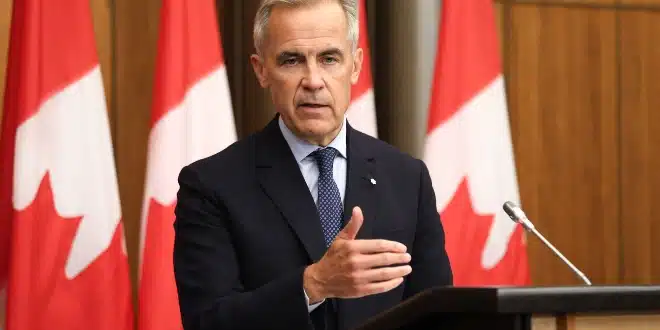Two more Western nations, Canada and Malta, have confirmed plans to formally recognize the state of Palestine in September, signaling growing international momentum for a two-state solution to the Israeli-Palestinian conflict. Their announcements align with recent pledges from France and the United Kingdom to support Palestinian statehood at the upcoming United Nations General Assembly (UNGA) session.
International Pressure Builds for Two-State Resolution
Canadian Prime Minister Mark Carney announced the decision following a Cabinet meeting, stating that the formal recognition would be announced during the UNGA session beginning on September 23. Carney emphasized that Canada’s support hinges on specific conditions, including the Palestinian Authority committing to general elections in 2026 without Hamas participation and agreeing to demilitarize the Palestinian state. These assurances were reportedly made by Palestinian President Mahmoud Abbas in a letter dated June 10.
Meanwhile, Malta’s declaration was delivered by Christopher Cutajar, the permanent secretary of its Foreign Ministry, during an extended session of the UN General Assembly focused on the Israeli-Palestinian conflict. Cutajar noted that Malta has consistently backed the Palestinian right to self-determination, adding, “Recognition is not just symbolic—it is a meaningful move toward achieving a just and lasting peace.”
Earlier, Malta’s Prime Minister Robert Abela took to Facebook to announce the move, stating it was part of the country’s broader efforts to contribute to peace in the Middle East. Malta, a member of the European Union and a former British colony, now joins over 145 countries—more than a dozen of which are EU members—that already recognize Palestinian statehood.
UK and France Signal Similar Intent
France and the United Kingdom have also joined the chorus for Palestinian recognition. French President Emmanuel Macron confirmed that France will formally recognize Palestine during the UNGA in September. UK Prime Minister Keir Starmer said his government would proceed with recognition unless Israel agrees to a ceasefire and begins a credible peace process within the next eight weeks.
With Canada, France, and the UK onboard, three of the Group of Seven (G7) industrialized nations have now committed to recognizing a Palestinian state. This development significantly increases diplomatic pressure on Israel, which remains firmly opposed to such moves and has chosen to boycott the ongoing UN meetings, along with its key ally, the United States.
Israel Pushes Back Amid Ongoing Conflict
Israel’s UN ambassador, Danny Danon, strongly condemned the growing support for Palestinian recognition. Speaking on Tuesday, Danon criticized the participation of more than 125 countries in the UN conference and described the recognitions as gestures that legitimize terrorism and distract from the ongoing crisis in Gaza.
Danon accused participating nations of ignoring the plight of Israeli hostages still being held by Hamas, stating: “This is hypocrisy and a waste of time that legitimizes terrorism and distances any chance of regional progress.”
A Roadmap for Peace and International Endorsement
The conference produced two documents aimed at charting a path toward resolution. The seven-page “New York Declaration” proposes a phased strategy to end the Israeli-Palestinian conflict and establish a demilitarized, independent Palestinian state coexisting peacefully alongside Israel. It includes provisions for integrating both states into a broader regional framework.
In a separate statement titled the “New York Call,” 15 Western nations—six of which already recognize Palestine and nine more that have signaled openness—urged other countries to follow suit. Among the nine were Canada and Malta, while seven others, including Australia, Finland, Portugal, and New Zealand, have not yet taken that step.
The Road Ahead
Saudi Arabia’s UN ambassador, Abdulaziz Alwasil, who chaired the session, suspended the meeting after the final speaker, stating that all 193 member nations had been sent the draft outcome document. Countries now have until early September to express support.
The growing support for Palestinian statehood at the UN reflects a shifting global consensus, even as obstacles remain. Israel continues to carry out military operations in Gaza and refuses to withdraw its forces from key positions in southern Lebanon, in breach of a previous ceasefire agreement. At the same time, the Palestinian leadership faces its own internal challenges—including uniting various factions and committing to democratic reforms.
As the countdown to the UNGA continues, the recognition of Palestinian statehood appears to be gaining unprecedented momentum—driven by international frustration with the prolonged conflict and renewed calls for a durable peace in the region.


